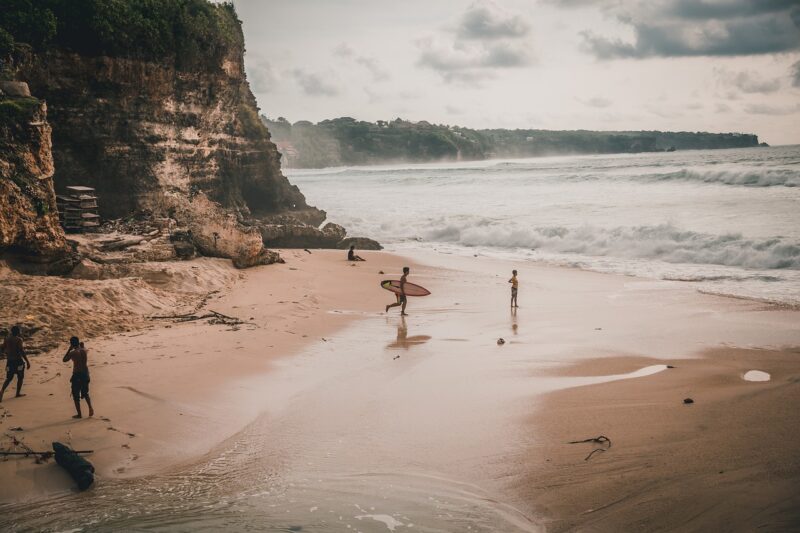Indonesia, a beautiful archipelago in Southeast Asia, is known for its rich cultural heritage and warm hospitality. As a visitor to this vibrant country, it’s essential to familiarize yourself with the local customs, including greetings. In this comprehensive guide, we will explore the various ways to say hello in Indonesian, providing you with valuable insights to enhance your cultural experience.
Table of Contents
Basic Greetings in Indonesian
- Selamat Pagi (Good Morning)
- Selamat Siang (Good Afternoon)
- Selamat Sore (Good Evening)
- Selamat Malam (Good Night)
Informal Greetings
- Apa Kabar? (How are you?)
- Halo (Hello)
- Hai (Hi)
Formal Greetings
- Selamat Datang (Welcome)
- Permisi (Excuse me)
- Mohon Maaf (I apologize)
Cultural Considerations
- Non-Verbal Greetings
- Handshakes and Bowing
- Using Titles and Honorifics
Conclusion
Basic Greetings in Indonesian
Indonesian culture places great importance on respectful and polite communication. When interacting with locals, it’s crucial to know the appropriate greetings for different times of the day. Here are the most commonly used basic greetings:
Selamat Pagi (Good Morning)
Selamat pagi is the phrase Indonesians use to greet each other in the morning. It’s customary to use this greeting until around 10 a.m. During this time, you can confidently say “Selamat pagi” to greet people you encounter.
Selamat Siang (Good Afternoon)
As the day progresses, the appropriate greeting changes to Selamat siang. Indonesians use this phrase from around 10 a.m. until 3 p.m. So, if you meet someone during this time, you can greet them with a friendly “Selamat siang.”
Selamat Sore (Good Evening)
As the afternoon turns into evening, it’s customary to switch to the greeting Selamat sore. This phrase is used from around 3 p.m. until sunset. When meeting someone during this time, you can warmly say “Selamat sore” to greet them.
Selamat Malam (Good Night)
Finally, when night falls, Indonesians use the phrase Selamat malam to greet each other. This greeting is appropriate from sunset until around 10 p.m. When meeting someone during this time, it’s polite to say “Selamat malam” as a friendly greeting.
Informal Greetings
In addition to the basic greetings, there are informal ways to say hello in Indonesian that is commonly used among friends, peers, or in casual situations. Let’s explore some of these informal greetings:
Apa Kabar? (How are you?)
Apa kabar? is a common way to ask “How are you?” in Indonesian. This greeting reflects a genuine interest in the other person’s well-being. When using this phrase, it’s polite to listen and respond to the person’s answer, showing that you care about their state.
Halo (Hello)
Similar to the English language, Indonesians also use the word halo as a casual greeting. This simple and straightforward term is widely understood and can be used in various social settings.
Hai (Hi)
The informal greeting hai is another common way to say hi in Indonesian. This term is less formal compared to “halo” and is often used among friends or acquaintances.
Formal Greetings
In formal situations or when addressing people with higher social status, it’s important to use proper formal greetings. Here are some essential formal greetings to keep in mind:
Selamat Datang (Welcome)
Selamat Datang is the appropriate phrase to welcome someone in formal settings. Whether you’re attending a conference, visiting an office, or entering someone’s home, this phrase conveys politeness and respect.
Permisi (Excuse me)
When you need to get someone’s attention or politely ask for permission, the word permisi is commonly used. Indonesians use this term to signal that they would like to speak or pass through, ensuring they don’t interrupt or disturb others.
Mohon Maaf (I apologize)
In situations where an apology is necessary, Indonesians use the phrase mohon maaf to express regret or seek forgiveness. Whether it’s a small inconvenience or a mistake, using this phrase shows humility and respect.
Cultural Considerations
Understanding Indonesian greetings goes beyond just learning the words. It’s essential to consider the cultural nuances and non-verbal aspects associated with greetings. Here are some important cultural considerations:
Non-Verbal Greetings
In addition to verbal greetings, Indonesians often accompany their greetings with non-verbal gestures. A warm smile, a slight nod, or placing the right hand on the chest can enhance the meaning of your greeting and convey sincerity.
Handshakes and Bowing
Handshakes are common in formal settings, especially when meeting someone for the first time. However, it’s essential to be mindful of cultural diversity, as some Indonesians may prefer a bow or a slight nod as a greeting instead.
Using Titles and Honorifics
Respecting social hierarchies is important in Indonesian culture. When addressing someone of higher status or older age, it’s customary to use appropriate titles or honorifics, such as “Bapak” (Mr.), “Ibu” (Mrs./Ms.), or “Kakak” (Brother/Sister).
Conclusion
Mastering the art of greeting in Indonesian is a wonderful way to immerse yourself in the local culture and build meaningful connections with Indonesians. From basic greetings to formal and informal expressions, this guide has equipped you with essential knowledge. Remember to not only focus on the words but also embrace the non-verbal aspects and cultural nuances associated with greetings in Indonesia.
Similar Articles
- Kalimera: Embracing the Greek Good Morning and Cultural Hospitality
- Discovering Japan’s Remote and Serene Getaways
FAQs
Q: What is the most common way to greet someone in Indonesia?
A: The most common way to greet someone in Indonesia is by saying “Selamat pagi” (good morning), “Selamat siang” (good afternoon), “Selamat sore” (good evening), or “Selamat malam” (good night) depending on the time of day.
Q: Are there any non-verbal gestures to accompany greetings in Indonesia?
A: Yes, Indonesians often accompany their greetings with non-verbal gestures such as a warm smile, a slight nod, or placing the right hand on the chest, which adds sincerity and meaning to the greeting.
Q: How do I greet someone formally in Indonesia?
A: In formal situations, you can use the phrase “Selamat datang” (welcome) to greet someone. It is polite and conveys respect.
Q: Can I use informal greetings with everyone in Indonesia?
A: Informal greetings such as “Apa kabar?” (how are you?), “halo” (hello), or “hai” (hi) can be used with friends, peers, or in casual settings. However, it’s important to adjust your greetings based on the level of formality and respect required in each situation.
Q: Should I use honorifics or titles when addressing someone in Indonesia?
A: Yes, it’s respectful to use appropriate titles or honorifics when addressing someone of higher status or older age in Indonesia. Common honorifics include “Bapak” (Mr.), “Ibu” (Mrs./Ms.), or “Kakak” (Brother/Sister).









